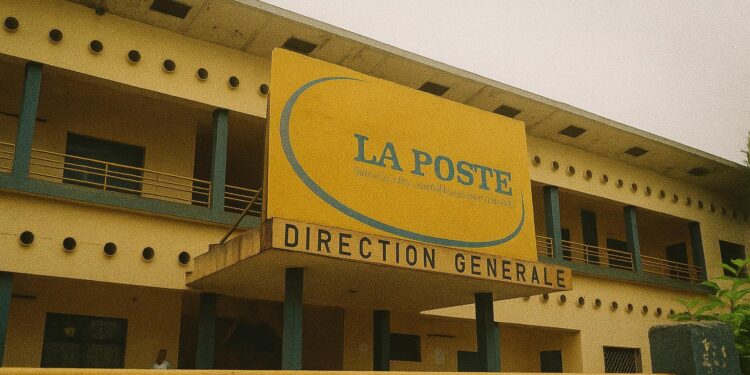Strategic Significance of Postal Codes in Emerging Economies
When the Council of Ministers in Brazzaville endorsed a decree creating a national postal-code grid, the move attracted less immediate fanfare than an oil discovery or a new Special Economic Zone. Yet diplomats and investors understand that an addressing system is the unseen capillary network of any modern marketplace. From the Indian Aadhaar-enabled delivery reforms to Rwanda’s drone-supported health-logistics corridors, comparable initiatives have shown that reliable geocoding reduces transaction costs, nurtures trust and widens the tax base (World Bank logistics assessments 2022).
In Congo, where dense rainforests meet fast-growing urban enclaves, the absence of codification has long obliged postal workers to rely on personal familiarity rather than data. This human ingenuity, admirable though it is, strains under demographic expansion that sees Brazzaville and Pointe-Noire absorb tens of thousands of new inhabitants each year, according to the National Institute of Statistics. A numeric addressing mesh therefore represents more than bureaucratic tidiness; it is a prerequisite for scale.
Alignment with Universal Postal Union Benchmarks
Minister of Posts, Telecommunications and the Digital Economy Léon Juste Ibombo told colleagues that the decree “positions Congo squarely within the Universal Postal Union compliance matrix”, pointing to best-practice parameters on code length, redundancy checks and database interoperability. The UPU lists roughly sixty countries still without standardised codes; Congo’s exit from that roster narrows a gap that has occasionally complicated cross-border mail exchange (Universal Postal Union 2023 bulletin).
Technically, the Congolese system will employ a hierarchical, numeric-alpha sequence that identifies department, district and delivery zone in fewer than seven characters. Officials involved in the drafting phase argue that such brevity preserves compatibility with legacy sorting hardware while being extensible for future spatial growth. Importantly, the decree mandates open-data access for private carriers once national security filters are applied, an element welcomed by regional courier associations.
Catalysing E-Commerce and AfCFTA Logistics
E-commerce platforms operating across the continent, from pan-African giants to local start-ups, frequently cite last-mile uncertainty in Congo as a barrier to market entry. With the African Continental Free Trade Area lowering tariff walls, physical delivery risk has become a decisive competitive variable. By institutionalising spatial codes, Brazzaville anticipates a reduction in delivery errors, shorter transit times and an expansion of cash-on-delivery options, which remain popular among first-time online shoppers (Economic Commission for Africa policy brief 2024).
A senior executive at a Central African freight integrator observes that the decree “synchronises nicely with the AfCFTA secretariat’s push for corridor efficiency between Pointe-Noire and Kinshasa”. The remark underscores that postal codes do not merely serve letters; they underpin route-optimising algorithms that trucking firms use to pool loads, thereby trimming carbon footprints and operating costs.
Urban Demography and Governance Considerations
Beyond commerce, codification offers governance dividends. Municipal authorities plan to layer public-health and civil-registry datasets onto the same geospatial grid, enabling targeted sanitation drives and more precise electoral rolls. In many African capitals, inconsistent addressing has hindered emergency-response times; Brazzaville’s fire service expects to shave critical minutes off dispatch intervals once integration with the new database is complete.
Critics of digital reforms in comparable contexts often warn of privacy lapses. The Congolese decree therefore embeds data-protection clauses consistent with the 2021 regional convention on cybersecurity, stipulating anonymisation protocols for any third-party analytics. That safeguard is intended to allay civil-society concerns without diluting the strategic intent of the project.
Toward a Diversified, Data-Driven Postal Sector
The postal operator, La Société des Postes et de l’Épargne du Congo, envisions new revenue streams once codification unlocks value-added services such as geofenced banking and subscription-based address verification. Sector analysts in Douala note that postal enterprises elsewhere in the region now derive up to one-third of turnover from digital products rather than traditional stamp sales, a ratio Congo aims to replicate within five years.
More broadly, the reform dovetails with the National Development Plan 2022-2026, whose digital-transformation pillar emphasises interoperability between public registries. By elevating the postal backbone to such strategic prominence, the administration signals a recognition that diversification is less an ideological slogan than a logistical imperative.
Measured Optimism from Stakeholders
Diplomatic observers describe the decree as a textbook case of incremental statecraft: neither flashy nor contentious, yet potentially transformative. The European Union delegation in Brazzaville, while reserving detailed comment until implementation schedules are published, privately welcomes the move for its “positive externalities on trade facilitation”.
Domestic entrepreneurs adopt a cautiously upbeat tone. A Pointe-Noire fashion exporter recounts losing an international client after repeated parcel misroutes. “A single code could have saved that contract,” she notes, underscoring the human narratives hidden behind logistic statistics.
The challenge now shifts to execution: surveying every street, educating citizens on code usage and updating digital platforms. Government planners have set a phased roll-out through 2026, synchronised with fibre-optic expansion and mobile-money penetration. If milestones are met, Congo may well convert the mundane act of writing an address into a lever for broader economic resilience.











































